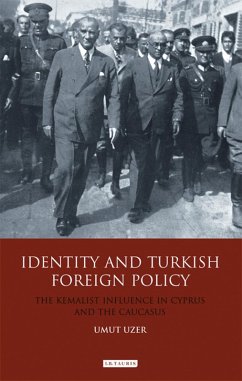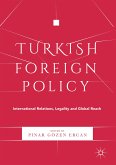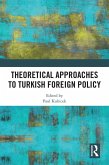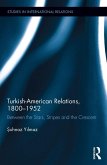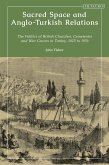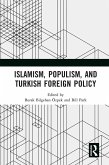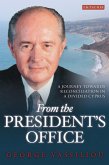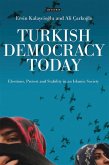Most analysts agree that Turkey's foreign policy is essentially peaceful, using diplomacy and multilateralism in the resolution of its conflicts with other states. Here, Umut Uzer offers a necessary corrective to this standard analysis by revealing the Kemalist influence in Turkey's state ideology. This defined the identity of the state as Turkish, resulting in responsibilities towards Turks residing beyond its borders, and a more engaged foreign policy that ranged from declarations of support for ethnic kin outside Turkey to outright takeover of territory. Focusing on the annexation of Hatay from Syria in 1939, Turkey's involvement in Cyprus culminating in a military operation in 1974 and its policy toward the Karabagh dispute between Azerbaijan and Armenia in the 1990s, "Identity and Turkish Foreign Policy" is indispensable for all those interested in Middle East politics and international relations as well as Turkey more specifically.
Bitte wählen Sie Ihr Anliegen aus.
Rechnungen
Retourenschein anfordern
Bestellstatus
Storno

